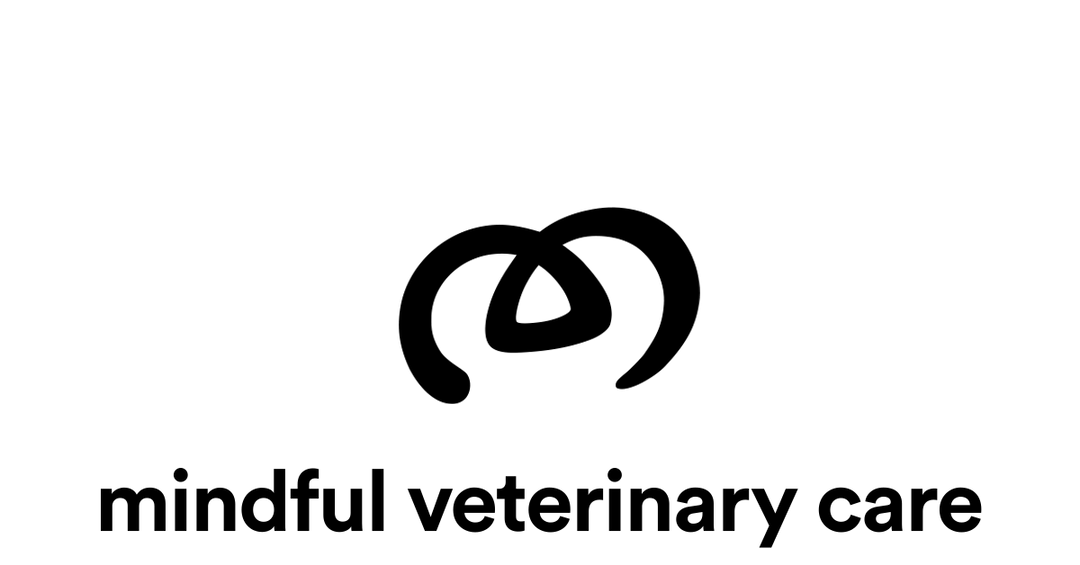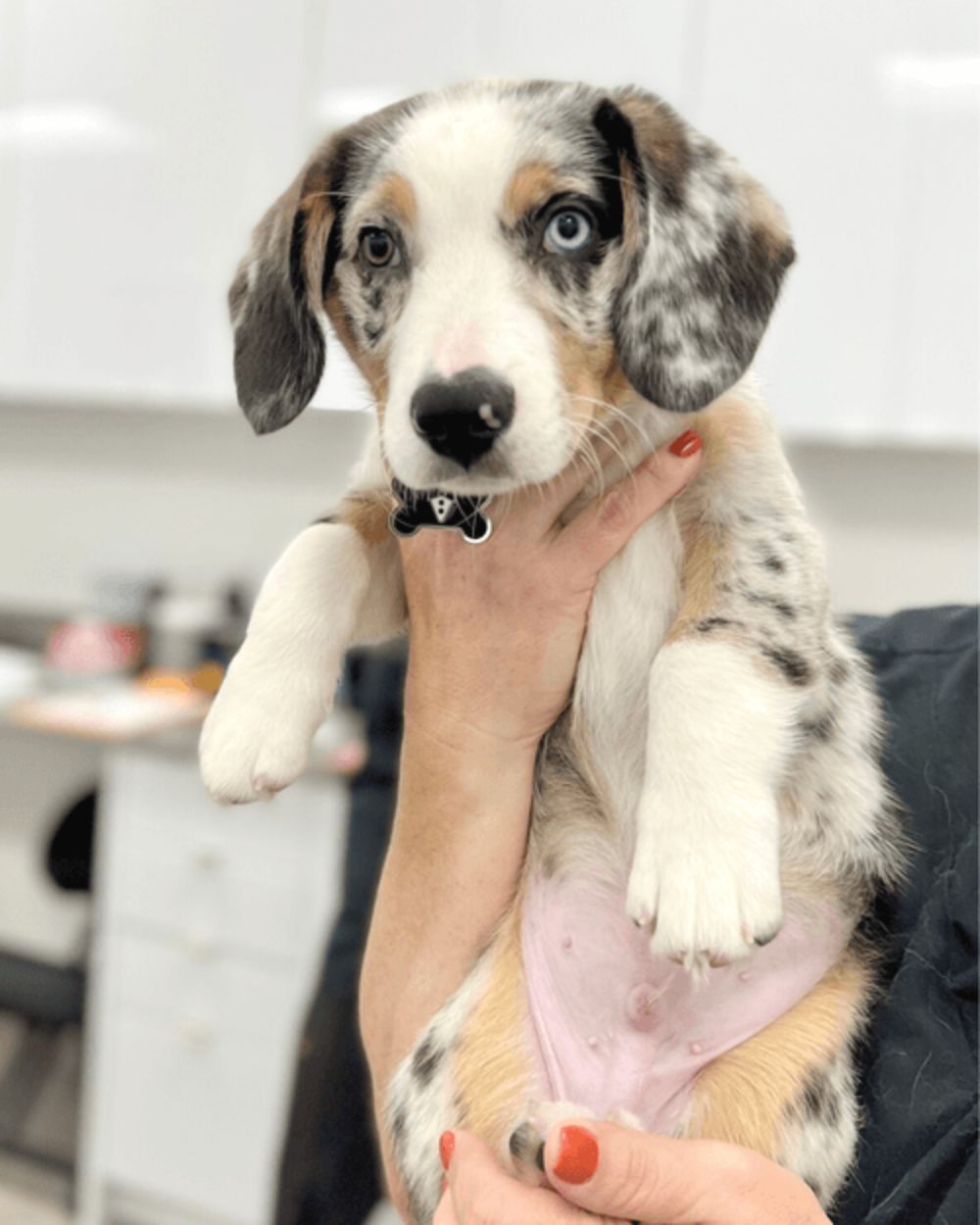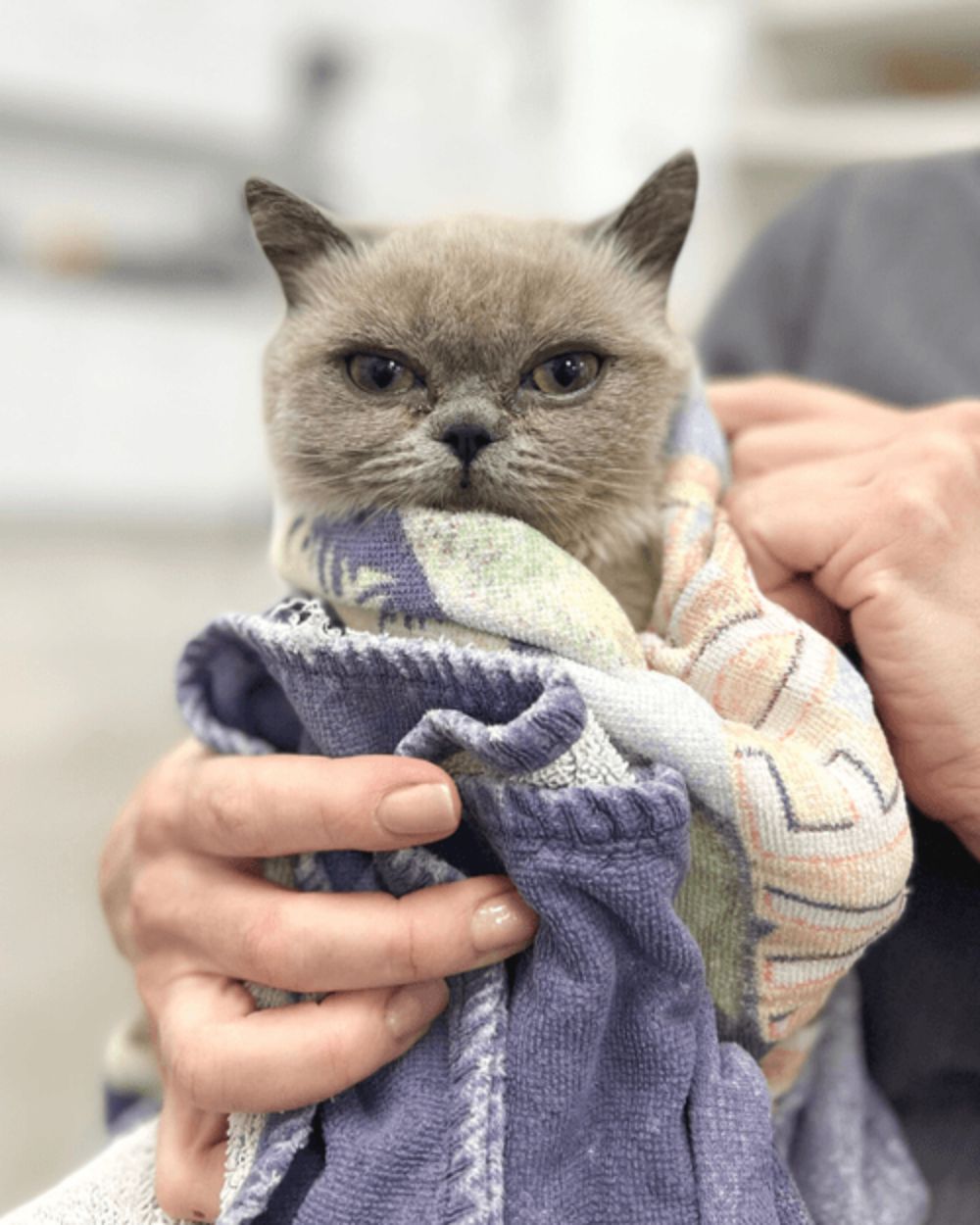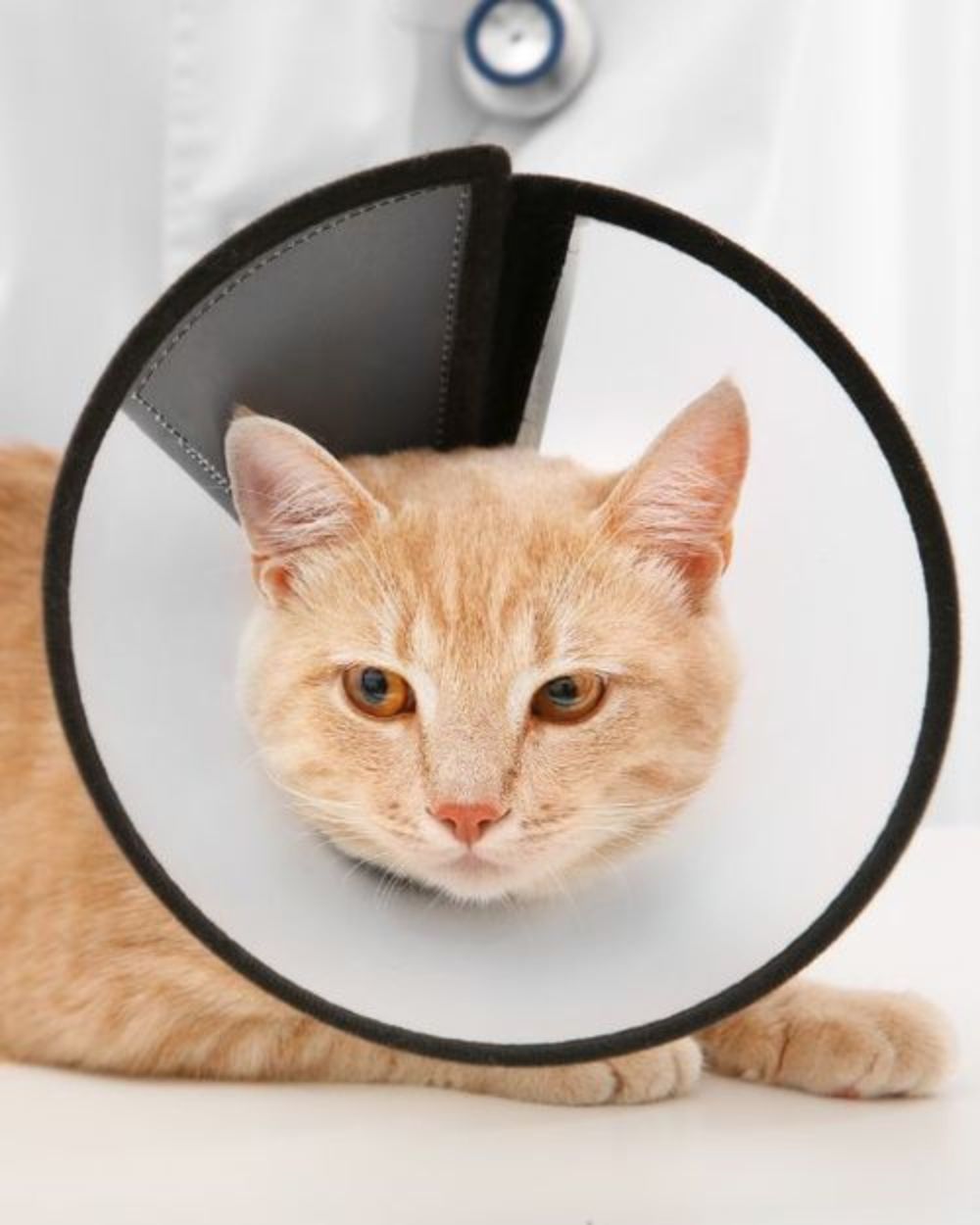
New Pet Information
Give your newest furry family member a healthy start in life with our new pet care guidelines.
Congratulations on adopting a new furry family member!
Adopting a new pet is a very exciting (and potentially overwhelming) event in one’s life. Below is a summary of preventative care recommendations by the veterinarians and staff at Mindful Veterinary Care.
Preventative pet care is a team effort. What this means is some preventative measures take place in a veterinary clinic setting on an annual, bi-annual, or quarterly basis. Then, some measures typically take place at home on a daily, weekly, or monthly basis. At Mindful Veterinary Care, we take a tailored approach to your pet’s care, meaning that we make our preventative care recommendations based on the specific life stage and health status of your pet.
For the purposes of this summary, we will outline some general recommendations that are meant to be an overview for most pets and for client education. Once we have the opportunity to learn more about you and your pet’s needs, we then develop a more individualized set of recommendations.
Preventive and Wellness Examinations
Puppies and kittens should receive a series of wellness checkups every 3-4 weeks between the ages of 6 weeks and 16 weeks. During these exams, we take the time to identify the following:

Make sure that development is occurring as expected

There is no evidence of congenital abnormalities

Update necessary recommended vaccinations

Take the time for client education regarding recommendations for new pet care

Answer any questions or concerns

Treat any sickness or abnormalities that may be present
For normal healthy adult animals between the ages of 1 and 7 years, we recommend routine wellness exams at least once a year.
For senior and geriatric animals greater than 7 years of age, we recommend routine wellness exams at least twice a year.
Vaccinations Guidelines: Canine
Derived from AAHA (American Animal Hospital Association) Guidelines
Core vaccines- Rabies, Da2p, Bordetella
Rabies Virus Vaccine (Schedule)

An initial rabies vaccine is given sometime in the window of 14-16 weeks of age

An adult Rabies booster is given at 1 year from the time of the puppy vaccine, then every 3 years for life

**Rabies vaccines are required by law unless there is an underlying health condition that warrants avoiding vaccination**
Canine Distemper Virus/Parvovirus/Adenovirus-2/+/-Parainfluenza or Da2P Vaccine

Puppy boosters: Series of at least 3 boosters given 3-4 weeks apart between the ages of 6-8 weeks and 16 weeks. Ideal to give 3 total boosters.

Adult booster at 1 year of age, then every 3 years for high risk dogs

For low risk dogs or those with underlying health problems, vaccine titers (blood test to check antibody levels) are available for canine distemper virus and canine parvovirus

Vaccine titers can be performed in lieu of revaccinating every 3 years in low risk adult dogs
Bordetella Bronchiseptica +/- Parainfluenza (intraoral, intranasal, or subcutaneous administration options)

A single dose of oral or intranasal Bordetella vaccine is given at or after 8 weeks of age


Adult dogs that do not visit a groomer, daycare, dog parks, or interact with any other dogs DO NOT need a regular Bordetella vaccination
Non-core (optional) vaccines
Leptospirosis Vaccine

An initial series of two boosters given 2-4 weeks apart are administered regardless of the age of the pet at the time the series is started. This can start as early as 8 weeks of age in puppies.

After the initial 2-booster series, the leptospirosis vaccine is boosted annually to maintain immunological protection
Lyme Disease Vaccine

An initial series of two boosters given 2-4 weeks apart are administered regardless of the age of the pet at the time the series is started. This can start as early as 8 weeks of age in puppies.

After the initial 2-booster series, the Lyme vaccine is boosted annually to maintain immunological protection
Canine Influenza Vaccine (H3N8, H3N2, or Combo)

An initial series of two boosters given 2-4 weeks apart are administered regardless of the age of the pet at the time the series is started. This can start as early as 8 weeks of age in puppies.

After the initial 2-booster series, the Canine Influenza vaccine is boosted annually to maintain immunological protection
Vaccinations Guidelines: Feline
Derived from AAFP (American Association of Feline Practitioners) Guidelines
Core Vaccines
Rabies (Schedule)

An initial kitten vaccine is given anytime after 12 weeks of age

A Rabies booster is given 1 year from the time of the initial vaccine, then is repeated every 1 or 3 years depending on the licensed interval of vaccine administered
Panleukopenia + herpesvirus-1 + calicivirus (FPV+FHV-1+FCV aka FVRCP) Vaccine (Schedule)

Kitten series: A series of at least 3 boosters given 3-4 weeks apart between that age of 6 weeks and 16 weeks. Ideal to give 3 total boosters

Adult booster at 1 year of age, then every 3 years for high risk cats
Feline Leukemia Vaccine (Schedule)

A single initial dose is given no earlier than 12 weeks of age

The vaccine is boosted annually to maintain immunity for at risk cats
Parasite Prevention in Dogs and Cats
At Mindful Veterinary Care, we take a tailored approach to your pet’s health care. This is especially relevant when considering the appropriate protocol for parasite prevention. All dogs and cats, whether they are indoor or outdoor, are susceptible to both internal and external parasites. However, geographic location and lifestyle are important factors to consider when deciding on appropriate parasite prevention for your pet.
For example, a hunting dog in the northeastern United States, where ticks and Lyme disease are endemic, may require a different approach to parasite prevention than a mostly indoor dog that lives in a condominium in Miami Beach. In South Florida, the most important parasites that we are concerned about and should be prevented are heartworms, intestinal parasites, and fleas. Ticks are certainly present but do not seem to be widespread.
External Parasites
External parasites include fleas, ticks, and skin/ear mites. Both dogs and cats, whether they are indoor or outdoor, are susceptible to external parasites. In South Florida, where the weather is a warm, humid, sub-tropical climate, external parasites are a concern and should be prevented in all dogs and cats.
The rationale for preventing external parasites is that fleas and ticks can spread potentially life-threatening infectious diseases and can cause significant itchy skin, discomfort, and skin infections. These conditions are easily prevented with sound external parasite prevention.
There are several safe and effective systemic (orally ingested) and topical (on the skin) flea and tick preventives available. Veterinary-approved products are typically safe and effective. Please discuss the appropriate approach to your pet’s external parasite prevention with our team.
Internal Parasites
Internal parasites include blood parasites (heartworms and infectious tick-transmitted diseases like Lyme Disease) and intestinal parasites (hookworms, roundworms, tapeworms, whipworms, and protozoans like giardia and coccidia).
All of these internal parasites are a high risk in South Florida and can mostly be easily prevented with monthly heartworm prevention.
There are several approaches to safe and effective internal parasite prevention in at-risk pets. Please inquire with the Mindful Veterinary Care team about the best approach to prevention for your pet.
For detailed information about heartworm prevention, please visit the American Heartworm Society Website.
Spaying and Neutering
A spay (ovariohysterectomy) is the surgical removal of the reproductive organs (uterus and ovaries) in female dogs/cats.
A neuter is the surgical removal of the reproductive organs (testicles) in male dogs/cats.
We generally recommend spaying and neutering all domestic dogs and cats. In most cases, this recommendation is made to prevent pet overpopulation and to prevent some fairly common disease processes that occur in intact pets, including mammary cancer, life-threatening uterine infections (pyometra), and some unpredictable behavioral patterns. This recommendation is a generalized one and may not be appropriate in certain circumstances.
In small/medium dogs and cats, it is appropriate to consider neutering or spaying your pet after 6 months of age. In large to giant breed dogs, it is most appropriate to wait until they are skeletally mature and perform the procedure at or after 1 year of age.
Dental Care and Prevention
Just like in people, dogs and cats are susceptible to the progressive onset of dental disease. It is as important to prevent dental disease with regular treatment and maintenance.
We recommend the following guidelines:
At-home prevention

Brush your pet’s teeth daily (or as often as possible)

Consider an approved dental treat or chew that is safe and effective

Consider additional at-home dental preventive techniques like wipes or water additives
Regular professional cleanings
We recommend annual professional dental cleanings as the most effective approach to dental disease prevention. Mindful Veterinary Care offers comprehensive dental services for disease prevention and treatment.
For more information on veterinary dental disease and prevention, please visit Veterinary Oral Health Council
Nutrition
There are several options on how to approach your pet’s nutrition. The most convenient, conventional, and reliable approach is to select a reputable, AAFCO-approved well-balanced commercial pet food that meets all of the recommended nutritional requirements for your pet’s needs given their age and health status.
However, there are also some alternative approaches to commercial pet foods, which may improve the nutritional value and the quality of the food that you feed your pet.
Mindful Veterinary Care supports all well-balanced and safely prepared approaches to pet nutrition without judgment. Our goals regarding your pet’s health and nutrition are to determine what are the most important factors influencing your position on how to feed your pet and to provide you with the education and resources on how to effectively and safely execute your desired approach.
Training and Socialization
Most dogs that are new to your environment will require some level of positive reinforcement-based training and controlled socialization. Some dogs require more intensive training than others.
We recommend consulting with a reputable trainer and/or group training socialization classes to help provide you with resources on how to most effectively communicate with your pet.
Pet Health Insurance
You never want to be in a position where you have to base your pet’s best interest on financial limitations. To avoid this potentially challenging circumstance, we recommend enrolling in a reasonable pet health insurance plan to help buffer the cost of unexpected veterinary medical expenses. Please see the pet insurance section of our website for more information.







